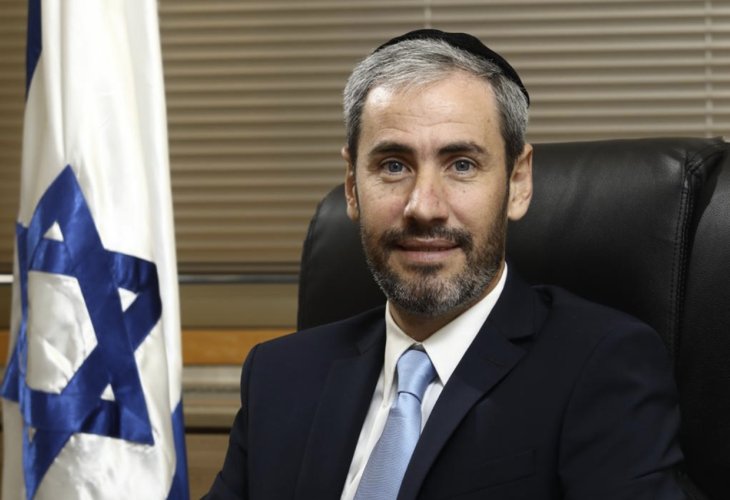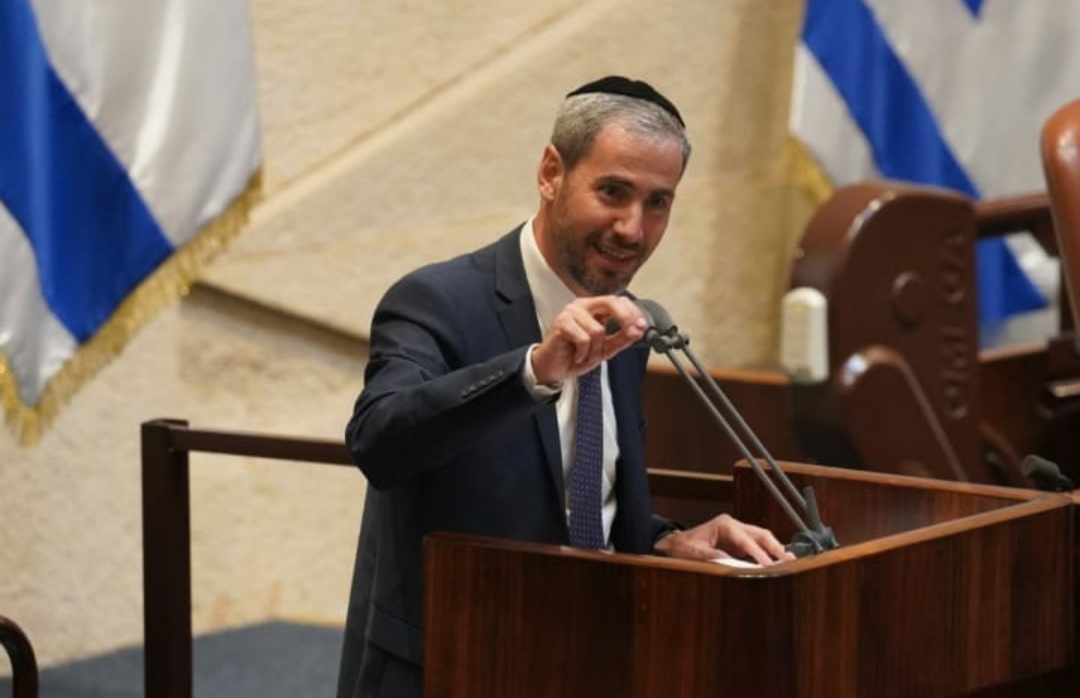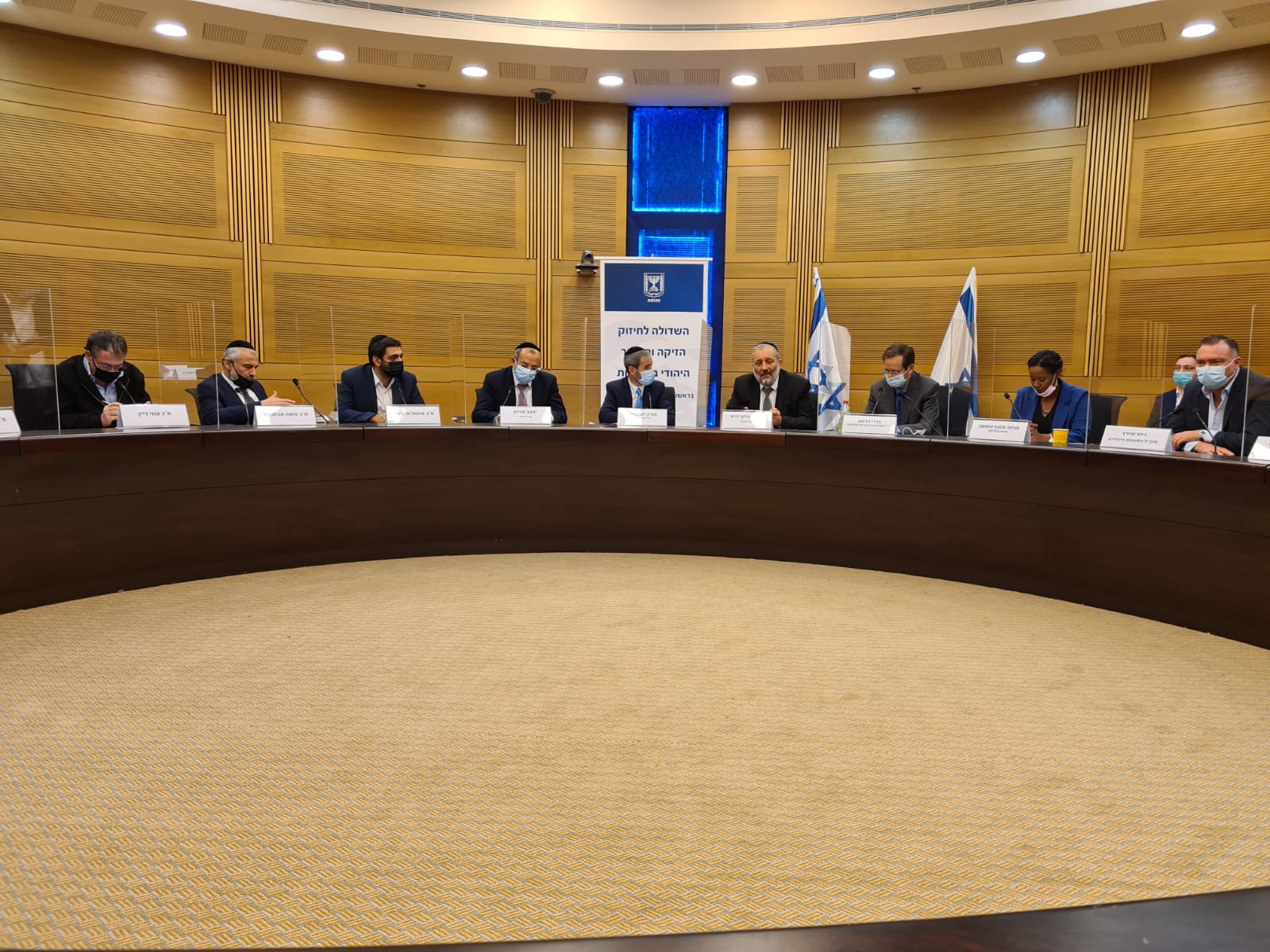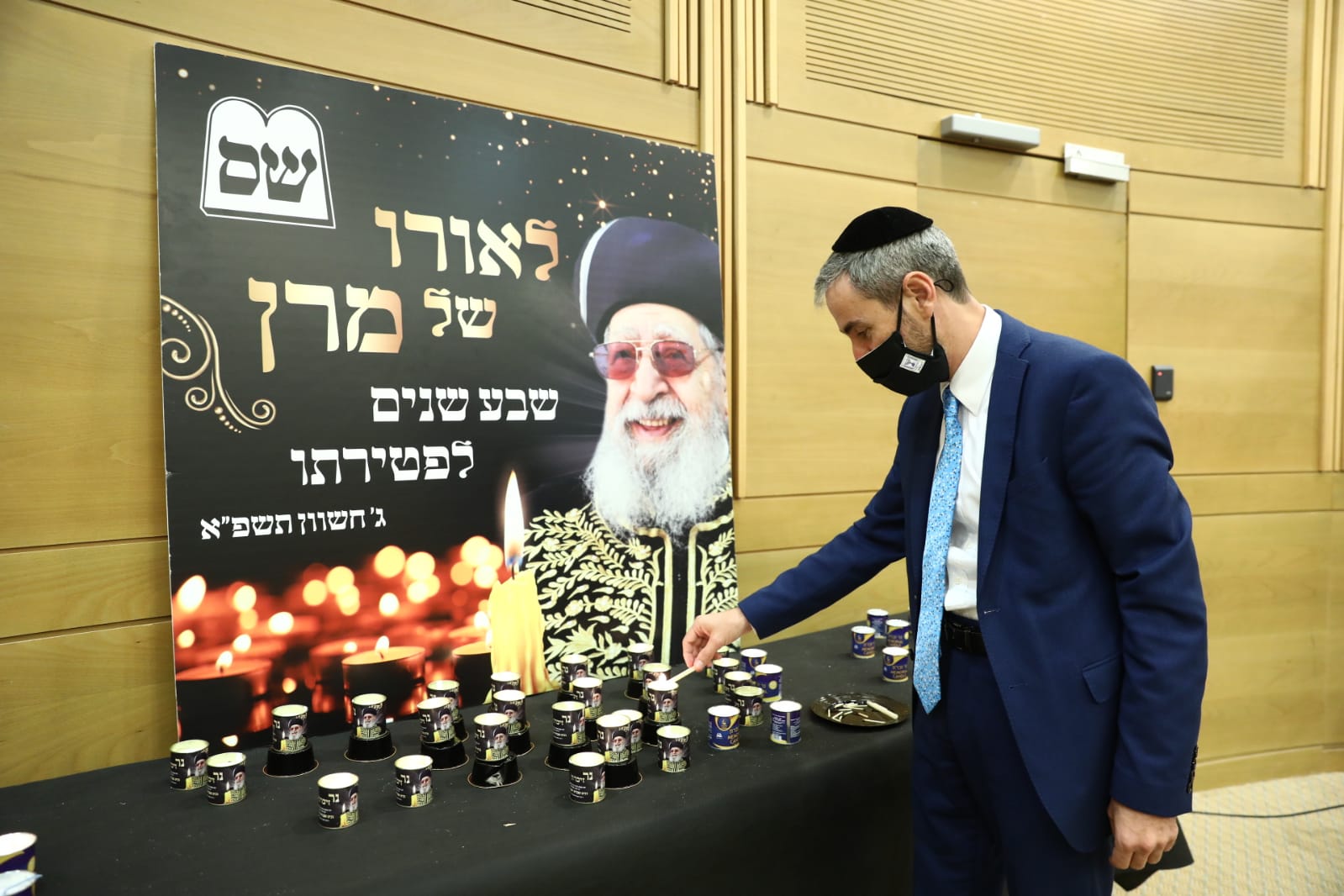MK Yossi Taieb: "New Immigrants Forced to Choose Between Aliyah and Family, It's Terrible"
As a new and young Knesset member, with only six months of experience, MK Yossi Taieb finds himself responsible for tens of thousands of new immigrants in the country. What happens with families that haven’t seen their parents for a whole year? How do they deal with strict bureaucracies? And what is the concern about tens of thousands of French people making Aliyah? A fascinating conversation.
 MK Yossi Taieb
MK Yossi TaiebFor the past six months, MK Yossi Taieb has found himself overwhelmingly busy. It's not just his entrance into the role of Knesset member representing the Shas party (replacing Yoav Ben Tzur under the Norwegian Law, ed.), but also the fact that the days of Corona provide him with more work than usual. Not on the standard fronts of Knesset members dealing with lockdowns / quarantines / reliefs / restrictions, and the like, but from a completely different direction.
For those who haven't had the chance to get to know him yet, MK Taieb is the sole representative of the new immigrants in the Knesset, as he himself was born and raised in France. Among the committees he is part of in the Knesset is the Aliyah and Absorption Committee, where he works vigorously. According to him, this Corona period has led to an increase in the number of new immigrants. "People continued to make Aliyah throughout the recent period," he clarifies, "even in months when there were restrictions and the sky was closed to tourists, Aliyah to Israel continued. The point is that they come to the country and do not always receive the support they need. Even veteran immigrants often encounter various bureaucratic issues. Until now, they had no one to turn to. Today, I focus my main activities on Aliyah, absorption, and the diaspora."
 (Photo: Israeli Knesset)
(Photo: Israeli Knesset)"A Representative of All Immigrants"
Taieb (39) is, as mentioned, a native of France and grew up in the 15th district of Paris. In 1996, he made Aliyah as a child, later studied at the Mir Yeshiva and subsequently enlisted in the IDF. After marrying, he studied in a kolel and was even ordained as a rabbi. Later, he and his family were on a mission in the city of Toulouse in France, on behalf of the Jewish Agency. After the mission, he returned to Israel and began his activities for immigrants, managing projects at the Wolfson Foundation for French immigrants. "For ten years, I cared for immigrants through the Wolfson Foundation," he notes, "until Minister Aryeh Deri approached me and asked me to run in the municipal elections in Kiryat Ye'arim. Indeed, I ran and was appointed deputy head of the council. From there, I quickly moved to the governmental arena, and after three election campaigns, it was decreed upon me to arrive here and take on the role of Knesset member."
Where do you feel you can operate more effectively - the governmental or the municipal arena?
"It is clearly a different type of activity, but there is no doubt that as a Knesset member, you can act much more and provide a much broader response to all parts of the public."
He pauses for a moment and then emphasizes: "It's true that I am affiliated with the Shas party, but naturally, once you deal with new immigrants, you deal with everyone's inquiries, and that's what's so special here. I strive to represent the entire French population, which includes secular, religious, and all varieties of kippot srugot. French Jewry has never made distinctions; we grew up without tickets, and I try here to be cross-sectarian. It is clear to me that when there is one representative in the Knesset representing an entire crowd, he cannot afford the luxury of answering only a narrow public, but must dedicate himself to everyone.
"I feel it is a privilege to be a representative of new immigrants, especially of Jews who came from France, and essentially, since the establishment of the state, there has been no representative to represent them in the Knesset. I understand better than anyone else what they go through, as I am familiar with the mentality up close since most of my family currently lives in France. I know that for years they have been talking about this step of inserting a representative for new immigrants through the Knesset, but until today, it remained only words. Now, Minister Aryeh Deri picked up the gauntlet, and I think it was an important decision."
"Forced to Choose Between Aliyah and Family"
Personally, Taieb notes that he is excited to see how Aliyah continues all the time without pause. "I believe that the State of Israel certainly extends a hand to new immigrants above and beyond, continuing to welcome them throughout the recent months and not closing its borders to the Jewish world. Although tourists, unfortunately, cannot arrive now, the situation of the new immigrants is not neglected."
One of the major plans he is working on these days is a plan for 'Community Aliyah to Israel from France,' which is something that has not been recognized until today. "I aim to promote the possibility of transferring entire communities from France to Israel, meaning they would leave France as a cohesive community and reside here as a community, receiving comprehensive responses to all their needs in the most designated manner. This is so required in my opinion, because abroad Jews are used to living in communities, where all their life ethos revolves around the synagogue and the community to which they belong. When they make Aliyah, they may become a huge part of the Jewish state, but community belonging is not always available to them. I believe that once we bring entire communities to the country, that they will be accompanied by us both materially and spiritually, it will be easier for new immigrants to integrate."

Where do you mostly encounter difficulties in integration?
"First of all, immigrants have numerous technical difficulties, such as recognizing their degrees. They can study and obtain reputable degrees abroad, but in Israel, they are not recognized. There's also the problem that the authorities do not always communicate in their language, and so, although they have different rights like payments for leave without pay, etc., they simply are not aware of it. This is evident particularly in small cities and peripheries."
Another issue Taieb repeatedly encounters, especially during Corona days, is that many new immigrants from all over the world, who came to Israel in recent years, find themselves this past year with closed skies unable to fly and meet their parents abroad. Conversely, parents cannot visit them in Israel.
"A very painful situation has arisen," Taieb describes, "as it often concerns young couples who arrived immediately after their wedding, having no family at all in the country, accustomed to meeting their parents every few months when they fly to them or their parents visit them. The inability to meet the parents is something that affects them greatly, and I haven't even mentioned situations where they celebrate happy occasions and events, and their closest people are unable to come and take part."
In this matter, he emphasizes that these days he is promoting a plan with the Ministries of Foreign Affairs, Health, and Interior, aimed at approving a compromise whereby parents of new immigrants who arrived up to four years from their Aliyah date could come to the country without checking the reason for their arrival. "It wasn't easy to reach this compromise, but after much deliberation, it seems it is about to take effect soon," he announces. "I know it's not enough, my initial demand was to allow the situation where parents of new immigrants who came over the last 15 years could come, but this is the compromise we managed to reach. I do not continue to insist because I know we are in a complicated period, and the reason Israel closed its borders is solely out of concern for public health. So I am not pushing for more than that."
"Not Seeking Advancement"
Contrary to what one might think, Taieb does not focus his activities solely in Israel, but also seeks to act for the Jews of the diaspora, those who have not made Aliyah, but have their own needs.
Why do you see yourself as responsible for them? They are not citizens of Israel
"I think our role is not only to absorb immigrants but also to strengthen the diaspora. It is no secret that there is currently severe intermarriage all over the world. If we take France, for example, it has about 450,000 Jews, of whom we estimate between 50,000 to 60,000 will make Aliyah in the coming years. There is no doubt that those who will come here will be the finest core of French Jews, those who currently hold and breathe life into the community centers. The moment we take 60,000 leading Jews from France, we essentially empty it, leaving it like sheep without a shepherd. The direct result would be extensive intermarriage, and if today we discuss 30% intermarriage in France, it is quite feasible to fear the percentages will rise to 70%, like in the US. This is a very worrying statistic."

So, what do you suggest?
"Recently, I have established a caucus to strengthen Jewish continuity and education in the diaspora. This way, communities abroad will continue to receive support and assistance from Israel; it's the least we can do for them."
And what will happen with all your plans following the fourth elections? Will you be able to continue promoting them?
"It is clear to me that it will not be easy. The Knesset is currently operating at one-third or one-quarter capacity, and as is known, the legislation committee does not convene at all. This means most of the laws I draft and submit cannot be brought to a preliminary reading or even to committee readings. But I do not intend to relent. The fact that the Knesset is not functioning at full capacity will not stop me from acting. These days I continue to handle public inquiries from new immigrants, both those still abroad and those already in the country, and continue to promote everything possible within the permissible framework. I believe we are facing a challenging period, but with Hashem's help, in a few months, we can continue to progress and provide broad and real responses to the public that has not received it so far."
Do you have a desire to progress to any position in the upcoming elections?
"If the question is whether I wish to be a minister, the answer is negative. I believe there are matters that a Knesset member can handle more than a minister, so I do not expect any promotion. I am content being an ordinary Knesset member and acting for the public. I aspire to continue exactly from where I am today; this is all I desire."

